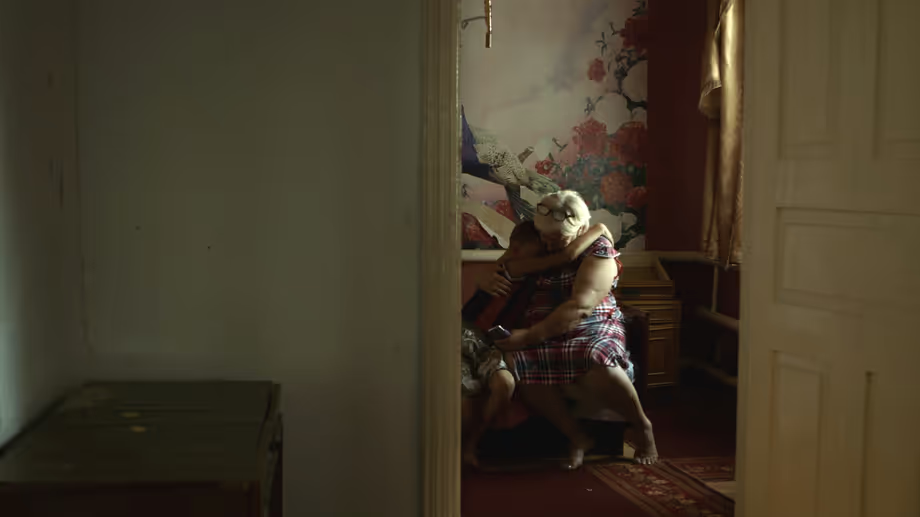The Distant Barking of Dogs: Discussion Guide
Letter from the Filmmaker

In my two previous films, I followed children who lived in very safe worlds. Their lives got knocked out of balance temporarily, and in the films we followed them in their individual struggles to get back on their feet again, growing wiser from the experience. That made me think about what it would be like if the situation was completely turned upside down: How does a child find safety and security in a chaotic world?
In The Distant Barking of Dogs, I follow 10-year-old Oleg, who lives with his grandma in a warzone in the eastern part of Ukraine, less than one mile from the frontline. I spent time in the area researching, and I remember the first time I met Oleg. He immediately stood out. I asked if he could describe how it felt to be scared. He looked at me and without hesitation said, “It feels like a hand reaching in and grabbing my heart. When the first explosions sound, after the cannons have fired, the hand starts squeezing my heart. Then it gets all little and cold, too.” It was then I knew I had found my main subject.
Soon afterward, I met his grandmother, Alexandra, an amazing, loving and strong woman. It was obvious how close and special the bond between the two of them was. Their house still showed signs of shelling and desperately needed repairs, but it was filled with warmth and laughter. A lot of the people in the village had been displaced, including many close friends and relatives, leaving behind a vacuum of activity where time did not exist. But there was always a warm meal ready and a good story waiting to be shared in their house. Life was calm and beautiful, as it should be. For a second, you almost forgot about the war. Staying there long enough, though, I soon realized that this bubble of safety was just an illusion. A brittle illusion that could shatter violently and often unexpectedly to reveal the very real and dangerous world that Oleg and Alexandra really live in.
The film is about how people deal with the cracks in that illusion and about the human drive we have to survive no matter what. How, even amidst the most impossible circumstances, we build illusory worlds for ourselves in which we can find comfort and warmth, because we can't exist for long in chaos. Even when the illusion is demolished over and over again, we still keep building it back up again. That kind of tenacity is incredibly beautiful to me.
I am also reminded of the importance of the people who surround us by the mutual dependency that Oleg and his grandmother have developed. They share a love for each other. Without one, the other would collapse. They live in two different worlds. His world is immediate: he reacts to what happens and quickly suppresses the bad things. She, on the other hand, knows that the things yet to come can have terrible consequences for them. In the film, Alexandra shelters Oleg from the big, bad world around him for as long as she can. That's what makes it possible for him to be a child long enough to give her the joy and strength that she needs to survive and keep up hope.
—Simon Lereng Wilmont
Director, The Distant Barking of Dogs
